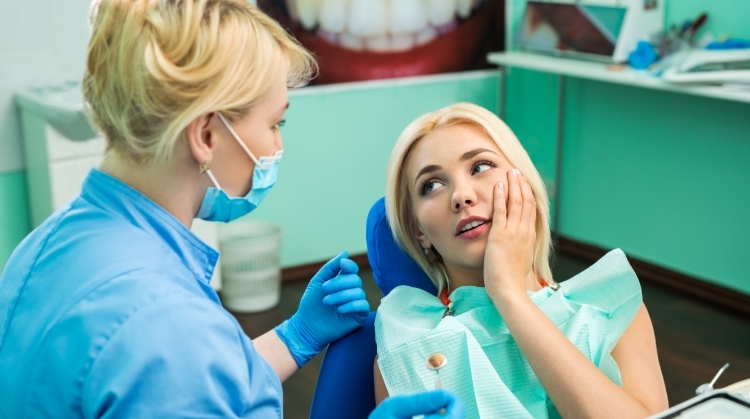Dental emergencies can happen at any time, often when you least expect them. Whether you’re enjoying a weekend in Bellingham’s beautiful outdoors or simply going about your daily routine, knowing what to do for a dental emergency can make the difference between saving and losing a tooth.
At Love Dentistry in Bellingham, WA, we understand that dental emergencies are stressful, which is why we’ve created this guide to help you navigate these urgent situations.
Understanding What Constitutes a Dental Emergency
Before addressing what to do in a dental emergency, it’s essential to recognize when one is occurring. Common dental emergencies include severe toothaches, knocked-out teeth, cracked or broken teeth, lost fillings or crowns, abscesses, and injuries to the soft tissues of your mouth. If you’re experiencing severe pain, bleeding that won’t stop, or trauma to your teeth or jaw, you’re likely dealing with a dental emergency that requires immediate attention.
Immediate Steps: What to Do for a Dental Emergency
When faced with a dental emergency, your priority should be to remain calm. Panic can cloud your judgment and exacerbate the situation. Here’s what to do for a dental emergency based on the specific type of issue you’re experiencing.
Knocked-Out Tooth
Time is critical when dealing with a knocked-out tooth. Pick up the tooth by the crown (the part you usually see), never by the root. Rinse it gently with water if it’s dirty, but avoid scrubbing or removing any tissue fragments. Try to place the tooth back in its socket if possible, or keep it moist by placing it in milk or saliva. Contact Love Dentistry in Bellingham, WA immediately, as reimplantation is most successful when done within 30 minutes.
Severe Toothache
Rinse your mouth with warm water and gently floss around the affected tooth to remove any trapped debris. Apply a cold compress to the outside of your cheek to reduce swelling. Avoid placing aspirin directly on the gum, as this can cause tissue damage. Over-the-counter pain relievers can provide temporary relief, but professional treatment is necessary to address the underlying cause.
Cracked or Broken Teeth
Rinse your mouth with warm water and save any pieces of the broken tooth. Apply gauze to any bleeding areas and use a cold compress on the outside of your mouth to minimize swelling. Avoid chewing on the affected side of your mouth until you can receive professional treatment.
When to Seek Emergency Dental Care
Knowing what to do for a dental emergency also means understanding when to seek immediate professional help versus when you can wait for regular office hours.
Contact Love Dentistry in Bellingham, WA immediately if you experience uncontrollable bleeding, severe pain that doesn’t respond to over-the-counter medications, facial swelling that affects your ability to swallow or breathe, or trauma from an accident or injury.
For less severe issues, such as minor chips, lost fillings, or mild discomfort, you may be able to wait until regular business hours. However, when in doubt, it’s always better to call and speak with our dental professionals, who can assess your situation and provide appropriate guidance.
Why Choose Love Dentistry for Emergency Care
At Love Dentistry in Bellingham, WA, we understand that dental emergencies don’t follow a schedule. Our experienced team is committed to providing prompt, compassionate care when you need it most.
We utilize the latest technology and techniques to address emergencies effectively while ensuring your comfort throughout the treatment process.
Conclusion
Knowing what to do for a dental emergency can significantly impact the outcome of your situation. Remember to stay calm, take appropriate immediate action, and contact Love Dentistry in Bellingham, WA, as soon as possible.
Our team is here to help you through any dental emergency, providing the expert care you need to restore your oral health and peace of mind. Don’t let a dental emergency catch you unprepared – save our contact information and keep this guide handy for future reference.
Ready to get the emergency dental care you need? Contact us today or visit our office for immediate assistance with your dental emergency.
Frequently Asked Questions
1. What should I do if my tooth gets knocked out completely?
If you experience a knocked-out tooth, handle it by the crown only, rinse gently with water, and try to place it back in the socket if possible. If you can’t reinsert it, keep the tooth moist in milk or saliva and contact Love Dentistry in Bellingham, WA, immediately. Time is critical, the best chance for saving the tooth is within 30 minutes of the injury.
2. How can I tell if my dental situation is a true emergency?
A dental emergency typically involves severe pain, uncontrollable bleeding, facial swelling that affects breathing or swallowing, or trauma from an accident. If you’re experiencing any of these symptoms or have concerns about how to handle a dental emergency, contact Love Dentistry in Bellingham, WA, right away for professional guidance.
3. Can I wait until morning if I have a severe toothache at night?
While mild discomfort might wait until regular hours, severe pain that doesn’t respond to over-the-counter medication should be addressed immediately. Dental infections can spread quickly and become life-threatening. When unsure about how to handle a dental emergency involving severe pain, it’s always best to seek immediate care.
4. What items should I include in a dental emergency kit?
Your dental emergency kit should contain gauze pads, a small container with a lid for storing knocked-out teeth, over-the-counter pain relievers, salt for rinsing, and contact information for Love Dentistry in Bellingham, WA. Having these supplies readily available can make a significant difference when you need to know how to respond to a dental emergency.
5. How can I prevent dental emergencies from happening?
Prevention includes regular dental checkups at Love Dentistry in Bellingham, WA, maintaining excellent oral hygiene, wearing mouthguards during sports, avoiding hard foods that can damage teeth, and refraining from using teeth as tools. While accidents can still happen, these preventive measures significantly reduce your risk of experiencing a dental emergency.










